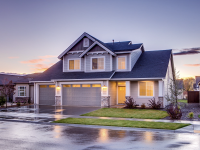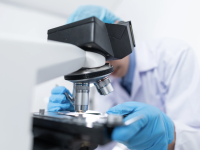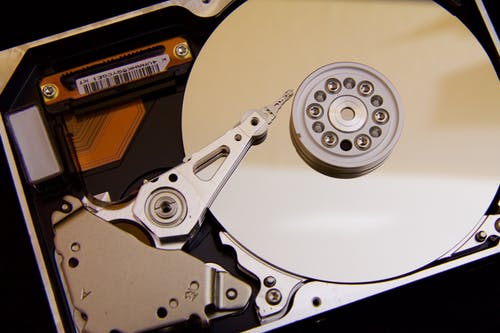Despite the increasing popularity of SSD, which is lightweight and fast, hard disk drives or HDD. Hard disk drives are more affordable and provide high capacity storage, compared to SSD. Hard disk drives are measured in terabytes. At higher terabytes, you can get more storage. When you save information on the computer, it will be recorded on the magnetic platter. These platters could spin up thousands of times per minute. Data can be added or deleted at any time. Because data is recorded magnetically, it doesn’t take continuous power to store the information. Early hard drives have less than 10MB of space, which is huge compared to floppy disks. Today, hard drives capacity can exceed 12TB and typical laptops could have 2TB of hard drives, along with 500GB of SSD.
Choosing hard drives shouldn’t be confusing. Depending on your budget, you should choose hard drives with the most storage and faster performance. Hard drive performance could vary, depending on the rpm value and the amount of cache. It would be frustrating trying to save information, but it takes too long to read or write. If you want to store large files, such as pictures, music and videos, SSD won’t be enough. SSD is expensive. You should use it only to store commonly accessed files. It is also ideal for Windows installation and various applications, such as Adobe Photoshop and Microsoft Office.
Price is a critical factor when you choose a hard drive. The most common hard drive size is a few terabytes. They should provide good economical value for daily storage purposes. Other than hard drive size, you should also consider transfer rates and access times. If you choose hard drive that’s less than 1 terabytes, it will run out of space too soon. When your hard drive is nearly full, its transfer rate will be much slower. Internal transfer rate is the speed a hard drive reads the data. External transfer rate is the speed a hard drive sends data to other devices. You should know that hard drive speed directly correlates with the capabilities of your computer. If hard drives are slow, fast processors and graphics cards will be useless. If you computer is working slowly, you should check whether your hard drive is bogged down. A typical solution is to delete unnecessary files and defrag your hard drives.
When choosing hard drives, you should also make sure to get them from trusted sources. Also read user reviews in popular online stores, such as Amazon, to make sure that a hard drive model is reliable and fast. If you don’t plan to store too many files or install a lot of programs, it’s better to choose an SSD. A 160GB SSD is affordable and it should be able to accommodate Windows 10 and popular productivity software. You may still have about 100GB for storing various files, which is more than enough for casual uses. Don’t buy a 2TB hard drive, if you don’t plan to store anything huge.


















